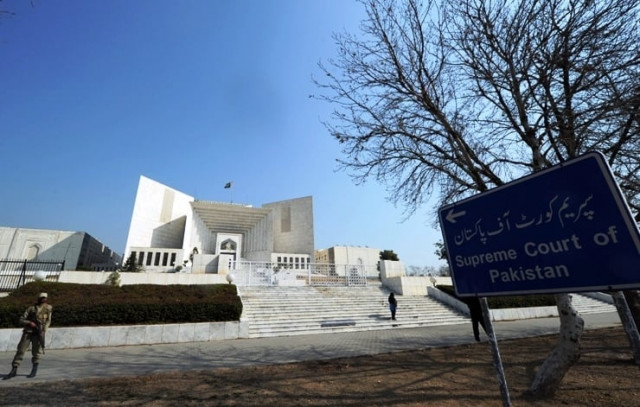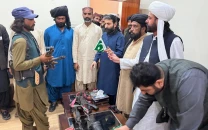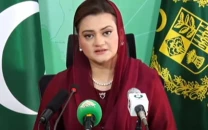Service tenure: With two judges lost, apex court questions role of president
Two IHC judges’ service ends; SC asks AG to seek Zardari’s instructions.

No last-minute breakthrough was made in the matter of two judges’ reappointment on Tuesday – and it seems that the die has now been cast for yet another standoff between the executive and the judiciary.
The president’s office chose to ignore recommendations put forth by a judicial commission and the Parliamentary Committee on the Appointment of Judges for the reappointment of two judges of the Islamabad High Court (IHC). Two IHC judges now stand officially retired.
Notably, the two judges were on the bench of a potentially explosive case pertaining to the validity of army chief Gen Ashfaq Parvez Kayani’s extension. The case was set to begin on Wednesday (today).
While the fate of that bench is now up in the air, the matter of the two judges’ reappointment is very much alive in the Supreme Court, where an overtly annoyed apex court and a characteristically adamant government draw the battle lines again.
Entertaining on Tuesday a petition regarding the non-issuance of the notification regarding the judges’ appointment, a four-judge bench of the Supreme Court questioned the president’s role in appointment process.
For now, the bench, headed by Justice Khilji Arif Hussain, has not extended any interim relief for the continuation of service of the judges in question — but it did raise some important questions regarding the president’s role in the process.
It has, instead, asked Attorney General (AG) Irfan Qadir to seek instructions from his client (President Zardari) on this issue. The matter will be heard again today.
Though it has given the president a chance to reply on the matter, the court’s view on the matter was pretty clear.
Heated exchange
Qadir told the court that the petition was contrived and Chief Justice Iftikhar Muhammad Chaudhry’s blessing to this petition could not be ruled out. AG Qadir also objected to the registrar’s letter that he dispatched to the parliamentary committee’s secretary in this regard. In response, the bench barred him from discussing irrelevant issues and asked him to assist the court on the legal aspect.
Justice Asif Saeed Khosa observed that, through 19th Amendment, Parliament gave power to the prime minister to just forward the names not advise the president regarding the recommendations approved by the judicial commission and the parliamentary committee for notification purposes.
Advocate Akram Sheikh, who had filed the petition on Monday asking the court to direct the president to issue notifications of the judges, told the court that the president had no authority to hold the issuance of these notifications for more than six weeks. “The president’s role is just clerical and there is no constitutional dispensation involved in the process,” he contended. Justice Ejaz Afzal Khan said that the premier has no reason to not forward the approved names to the president and the president has no reason to stop the issuance of these notifications.

Defending the president’s office, AG Qadir said that the composition of the judicial commission that had given approval of these judges was illegal since the senior most senior judge of the IHC was not present during the meeting.
“Under Article 175-A (13) the prime minister forwarded the names to the president but what are the impediments now in the way of issuing [these] notifications,” Justice Afzal asked the AG.
Qadir replied that the impediment was only “the Constitution” of the country. “The president took oath under the Constitution not under the judicial commission,” he said, adding that, though the commission had approved the names of the judges, he strongly raised objections on the composition of the body.
Subsequently, the bench asked AG Qadir whether the government had challenged the composition of the commission and Qadir replied that it was not necessary to do so because as high functionaries of the government – of which the president was also a part – could disregard any unconstitutional and unlawful order of the Supreme Court.
In response, Justice Khosa observed, “Mr attorney general, you are advancing to a very dangerous argument.”
The AG was told that the court had already decided this issue in 1987 that judicial orders cannot be ignored, and, for any relief, one has to adopt the legal course.
The matter will now be heard today.
The judges in question are Justice Shaukat Aziz Siddiqui and Justice Noorul Haq Qureshi, whose confirmation and extension was recommended by the judicial commission and the parliamentary committee. However, the notification to this effect never came from the Presidency.
On Tuesday, after completing his one year tenure, Justice Siddiqui relinquished all perks and privileges and left the IHC in his private vehicle. High court officials revealed that although Justice Siddiqui could claim ownership of the vehicle since it was given to him permanently as per official policy, he returned it to the government voluntarily.
(Analysis: Army chief versus the judge?)
Published in The Express Tribune, November 21st, 2012.



















COMMENTS
Comments are moderated and generally will be posted if they are on-topic and not abusive.
For more information, please see our Comments FAQ